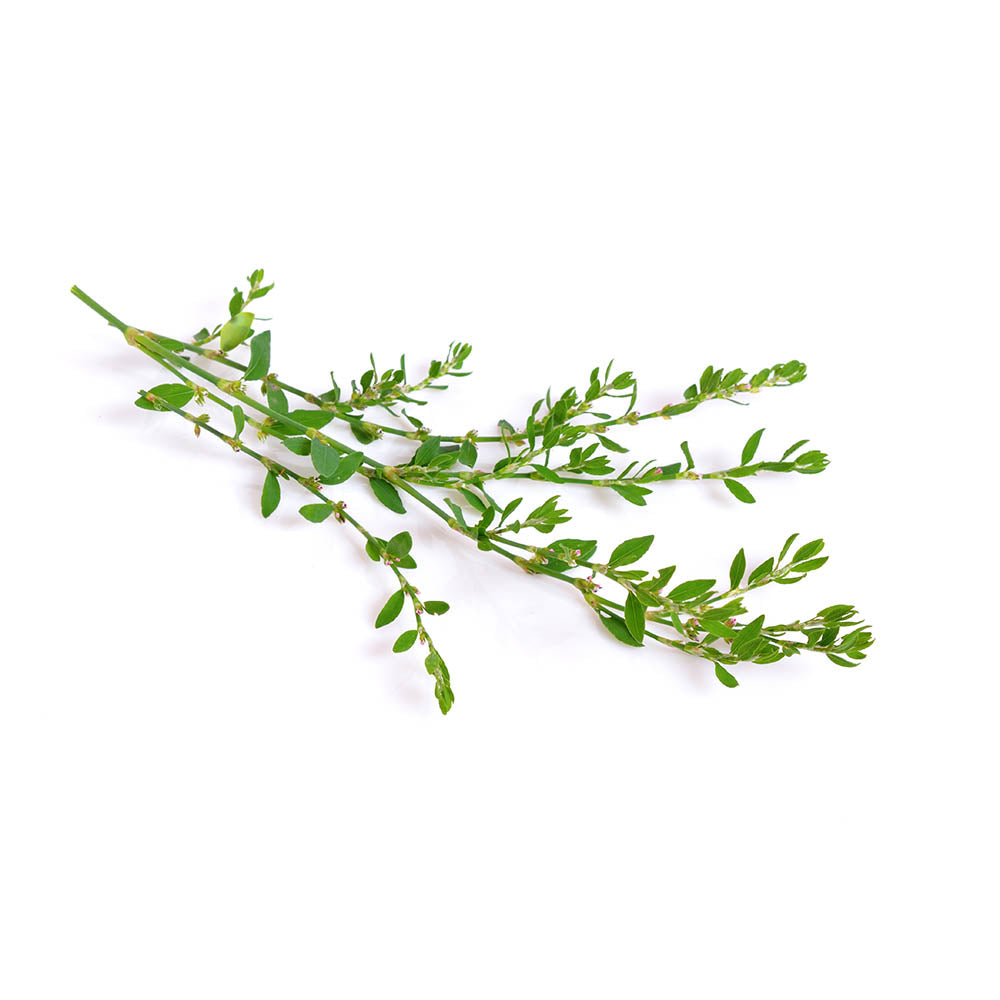Knotgrass (Polygonum aviculare) Dried Herb

Polygonum aviculare or common knotgrass is a plant related to buckwheat and dock. It is also called prostrate knotweed, birdweed, pigweed and lowgrass.
Knotgrass contains approximately 1% silicic acid which is partly water-soluble (0.08%) in boiling water. It contains 4% tannins, phenolic acids (caffeic acid and chlorogenic acid), coumarins (umbelliferon and scopoletin) and flavonoid glycosides (hyperin, quercitrin and avicularin).
In addition, knotgrass contains mucins, tannins, traces of an essential oil, vitamin C and other substances.
Properties:
- A good herb for the respiratory tract. Because knotgrass contains silicic acid it may be helpful in strengthening the connective tissue of the lungs and in Europe it has been used as a remedy for pulmonary tuberculosis and chronic bronchitis.
- The content of tannins is the reason why knotgrass has astringent and styptic properties (especially recommended for nosebleeds), while the flavonoid glycosides are the reason for its diuretic properties.
- Internally the knotgrass is used in tea form as a remedy for many ailments associated with gastrointestinal system, such as diarrhea, ulcerative colitis and hemorrhoids and also for diseases related to the urinary tract such as cystitis, renal gravel and kidney stones that do not block the ureter.
Preparation and dosage:
In a cup add 1 teaspoon, pour boiling water, brew covered for about 10-15 minutes, strain it and drink it 2-3 times a day.
Ingredients: 100% Polygonum aviculare from ECO plantations
Country of Origin: Poland
This information is not intended to diagnose, treat, cure, or prevent any disease.
Not intended for use by pregnant or nursing women. If you have a medical condition or are taking medication, consult your doctor prior to use.




